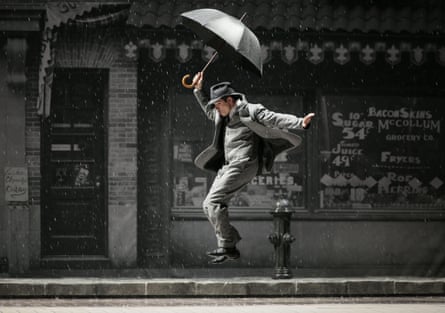It has been two years since Ruth Mackenzie was named artistic director of the celebrated Châtelet theatre in Paris. In that time, she has yet to see a show there. Mackenzie arrived in the French capital just as the magnificent but crumbling 19th-century edifice on the right bank of the River Seine – built on the orders of Napoleon III’s chief architect Baron Haussmann – closed for more than two years for renovations.
Today, as the work nears completion, Mackenzie and co-director Thomas Lauriot dit Prévost are unveiling a new programme that shows they have not spent the last two years watching the gilt paint dry.
Sitting in a vast office that – without the current scaffolding – has spectacular views over the Seine, the pair see themselves as modern-day Robin Hoods, a comparison that’s particularly appropriate for Mackenzie who once worked at Nottingham Playhouse.
One of their first acts will be to introduce a scheme for theatregoers to buy extra tickets for those who cannot afford them. Mackenzie says it is not simply a redistribution of cultural opportunity but an attempt to enlarge the collective experience.

“Everyone knows Robin Hood stole from the rich to give to the poor. In this version we are asking the rich to steal from themselves and give to the poor. For us it works at all levels – for extremely generous sponsors and corporations, for individuals who do philanthropy on a great scale, and also for people like me who might buy one ticket and another for someone who cannot afford one themselves,” she says.
“Our dream is that people will sit together. In this way it underpins an idea of community building.”
The theatre will also offer 10,000 €10 tickets a year to the under-25s, and there are also plans to take artists out into the community, particularly the more gritty areas of the city and its banlieues, to work with local groups, schools and colleges and encourage wider participation in the theatre and its productions.
“All Paris citizens who pay taxes have paid for the theatre, so our starting point ought to be what on earth are they getting for their money and how do we create a way of working with them and for them? We’ve talked a lot about how to reduce the democratic deficit; that’s to say the fact people have paid but don’t have any way of evaluating what they’re getting or of influencing the work of the theatre,” Mackenzie says.
Lauriot dit Prévost says: “The barriers are not only financial. There are people who feel, this place is not for me, I don’t belong in this magnificent 19th-century theatre. That’s why it’s important for our artists to go regularly outside the theatre … to reach out to audiences and not just expect them to come to us.”
In the 20th century, the Châtelet was home to Vaslav Nijinsky, Anna Pavlova, Debussy, Ravel, Stravinsky, Cocteau and Picasso. For the last decade, under the directorship of Jean-Luc Choplin, it has been Broadway sur Seine, famed for its English-language musicals. Choplin’s motto was “Sophisticated but popular”, which initially horrified Paris’s culture purists.
Mackenzie and Lauriot dit Prévost insist they are not dropping the musicals – An American in Paris is on the Christmas programme. But, while they talk of “tradition and innovation”, there is the sense of an emphasis on the latter.
The reopening show in September, Parade, will feature giant marionettes from Mozambique and a group of acrobatic “extreme action” dancers. It sets the tone for the Châtelet’s latest incarnation as theatre of the people, by the people, for the people.

Parade will be followed by Les Justes, a musical adaptation of Albert Camus’ work staged by Abd Al Malik, a French rapper-songwriter. Next year sees the Glyndebourne festival’s production of Handel’s Saul; Perle Noire: Méditations Pour Joséphine (Baker) directed by American Peter Sellars; a homage to “Mama Africa” Miriam Makeba by Malian singer Rokia Traoré; Cinderella by the Dutch National Ballet; and Giselle by the English National Ballet.
Mackenzie has served as a special adviser to UK culture ministers, as director of the London 2012 festival, as a drama officer for the arts council and as general director of Scottish Opera. She says Paris mayor Anne Hidalgo interviewed her and Lauriot dit Prévost for the job and encouraged them to be “ambitious and audacious”.
“If you ask a theatre to be audacious and artists to be ambitious, they may be provocative, which brings with it risks,” she says. “We are working in an environment where the politicians absolutely understand and support that. Here you don’t have to question the importance of the arts; it would be ridiculous and insulting for us to tell them how much it matters. That is very different from the experience of most cultural institutions in the UK.”
Lauriot dit Prévost says: “We hope in a few years that when people think about the Châtelet they will think of a theatre that is really engaged in the life of the city – that the Châtelet is thought of as an activist theatre.”

Comments (…)
Sign in or create your Guardian account to join the discussion